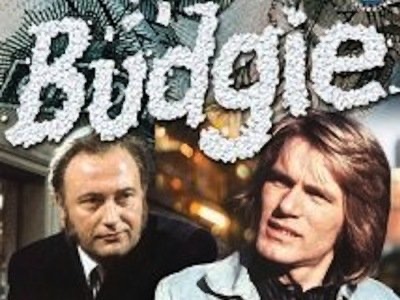
The 70s may have been a trashy decade but Budgie proved high quality, innovative TV did exist
I’ve mentioned the good people at Talking Pictures TV a number of times in this little blog spot, not least about their broadcasting of the wonderfully surreal and hidden TV gem Sunday Night At The London Palladium (See Tarbuck Memories below), and, true to form, recently they have introduced one of the great series of the 70s, Budgie starring Adam Faith and Iain Cuthbertson. This ‘must see’ TV has been criminally ignored for many years and although showing its age in some the attitudes (what 60s or 70s series doesn’t?) there is much to unpack culturally and I can’t wait to get stuck in!
As an 11 year old, along with Monty Python’s Flying Circus and The Avengers (See The Avengers: Quirk, Strangeness and Charm (and bags of style) below), Budgie was one of the highlights of the viewing week. Going out on ITV on Friday nights at 9.00pm it had prime spot on the schedules and only two other channels to contend with, but Budgie knocked all its competitors into a cocked hat. And why wouldn’t it? Budgie’s credentials were top notch in all sorts of ways. Ironically, the low-life, seedy adventures of pathetic petty thief Ronald ‘Budgie’ Bird alternated in 1971 with the upper-crust adventures of ultra-suave Gerald Harper‘s series Hadleigh, a series that couldn’t be more different. But it was Budgie that had the style despite his moral compass being worryingly askew in all sorts of ways. But that’s why he was believable as a dodgy 70s character, as were so many other characters in the series. To view a 70s drama through the moral prism of 2020 is a difficult thing to do, and Budgie inhabited a world very different in many ways to our own but in some ways nothing has changed. In fact, the writers, Keith Waterhouse and Willis Hall created a character who was, at the same time, despicable, immoral, pathetic but also sympathetic and even lovable. In other words they created a character who was totally believable for the times.
The first episode of Budgie, ‘Out‘, was broadcast by ITV on 9 April 1971 at 9.00pm on a Friday evening just after On The Buses (See Cor Blimey Stan, How Did You Do It?: On The Buses below) and Hawaii Five-O. On BBC 1 it was up against the wonderful Dick Emery Show and Gala Performance, whatever that was, though it sounds faintly classical. Episode 2 the following week clashed with, again, Dick Emery and then Miss England 1971! There was a conundrum for the discerning viewer. If they didn’t approve of the filth featured in Budgie, they could switch channels for some good, clean, 70s female exploitation. And then they could watch Miss England 1971.

The role of Budgie will always be synonymous with the late Adam Faith. A 60s pop star, he was spotted playing in a Soho skiffle group when he was plain old Terry Nelhams by 6-5 Special producer Jack Good and he went on to have over 20 top 40 hits, his most well-known being his early songs What Do You Want? and Poor Me. The great British film composer John Barry was also instrumental, so to speak, in setting Adam Faith, as he was renamed, on the road to success after his first records bombed. However, although pop stardom was fine and certainly lucrative, Faith’s dream was always to become an actor and while he appeared on the John Barry BBC pop vehicle Drumbeat, he was spotted and cast in the controversial 60s youth culture film, Beat Girl (1960). Controversial because anyone over the age of 40 in early 60s Britain was terrified by the idea of young people having their own culture. Just like today, youth culture is identified by certain older generations as being fuelled by drugs, sex and, of course, rock and roll. Sounded ok then and it sounds ok now. But Beat Girl had an ‘X’ certificate slapped on it immediately by those who knew better, so no young people could see it. Who knows what what might have happened to them if they had? Maybe they’d have had a good time. Although he didn’t exactly act in it, Adam Faith had the acting bug and various roles in theatre and TV began to come his way.
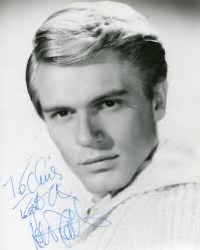
Faith then starred in the comedy film What A Whopper (1961) about some young people going to look for the Loch Ness Monster. The first film written by Laugh-In and Are You Being Served‘s Jeremy Lloyd (more about him throughout this little blog space e.g. The Utterly Weird Adventures Of Tiny Tim below), it was an inoffensive knock-about comedy that received poor reviews but kept Adam Faith in the acting public eye. With no writing or even acting credits at this point, Lloyd had his very first script accepted and made into a film. Wouldn’t happen nowadays but that’s how some people became famous in the 60s. He just happened to be in the right place at the right time, and that was certainly true of Adam Faith too. Of course, it helped massively to be based in London.

He was subsequently cast in Keith Waterhouse and Willis Hall’s seminal 60s play, Billy Liar which toured the country including the Glasgow Citizens Theatre in 1968. Whether Waterhouse and Hall had Adam Faith in mind when they wrote the scripts for Budgie in 1970 is uncertain but it turned out to be a partnership made in TV heaven.
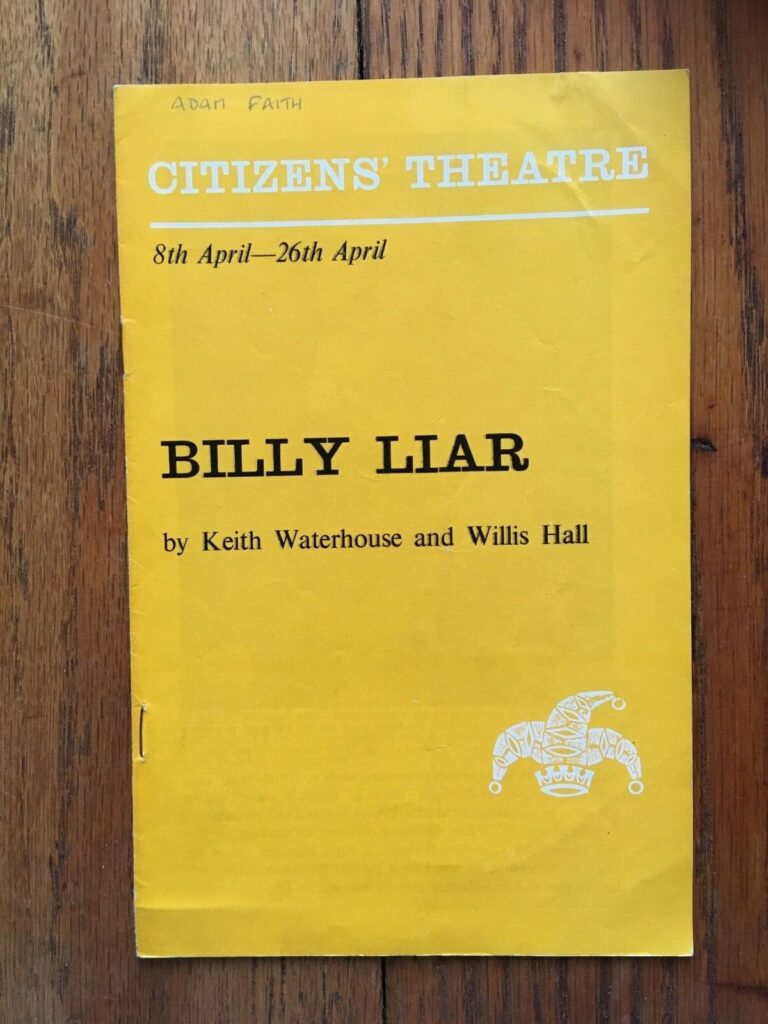
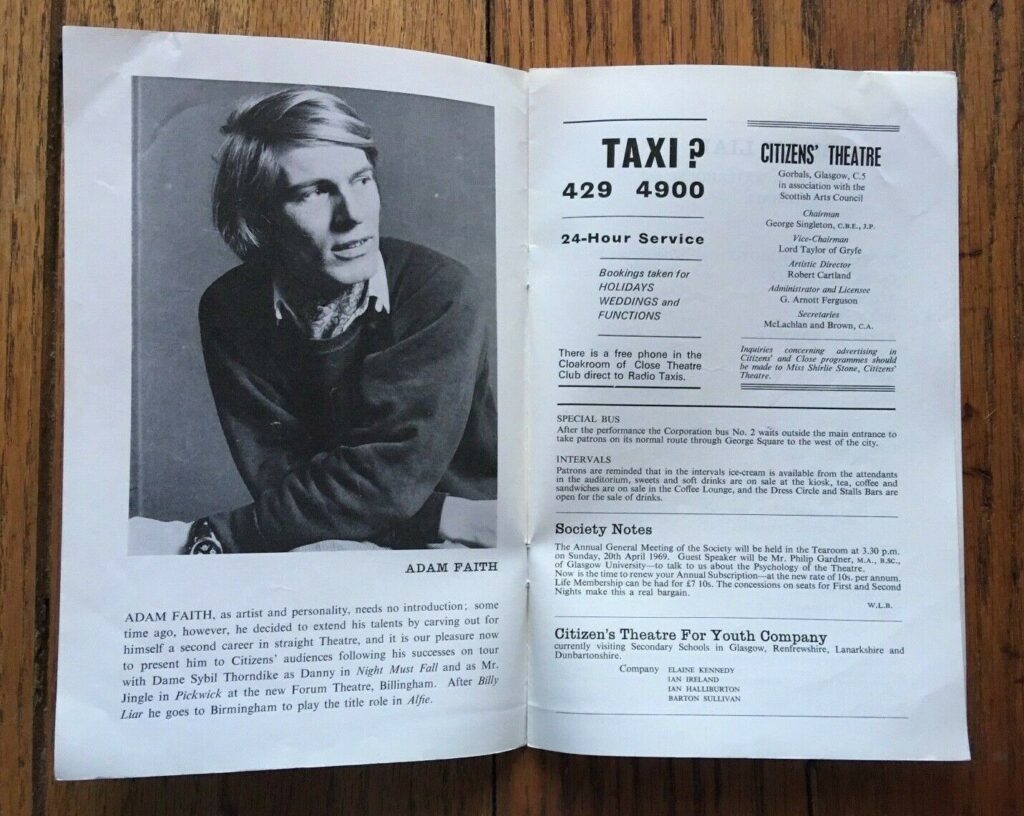
Initially the series was to be called The Loner but was eventually changed to Budgie. For me this was important as Adam Faith‘s eponymous character was a loner in some ways but that wasn’t the central conceit of the series. There were many facets to Budgie’s personality and being a loner was only one of them and all were explored to varying extents in each episode. The memorable theme music to Series 1 by The Milton Hunter Orchestra was also entitled The Loner and, for me, it really captured the mood of the character and the series. The dream-like orchestration and haunting melody of the opening credits providing a musical backdrop to the slow motion sequence of Budgie desperately trying to grab handfuls of cash floating in the wind, encapsulated the tone of the series and the character of Budgie. He knew success was always within his grasp but something invariably got in the way to deny it.
For some reason the producers changed the theme music for Series 2 and replaced it with a song by the great Ray Davies of The Kinks. The song was called Nobody’s Fool and was performed by Ray Davies himself and Cold Turkey. It’s a decent song and the lyrics certainly reflected the character of Budgie accurately, but it didn’t match the haunting opening of Series 1. At the time I was convinced it was Adam Faith singing and believed this for many years until I found out recently it was Ray Davies. I wonder why they didn’t get Faith to do the theme himself? Maybe by this time he’d turned his back on singing and didn’t want to be associated with the ‘pop star’ Adam Faith?
Series 1 and 2 gave opportunities to three directors all making a name for themselves and each would go on to become well known in their own right. Mike Newell directed six episodes of Budgie and went on to direct Four Weddings and a Funeral, Harry Potter and Donnie Brasco amongst many other successful films. Previously to Budgie he had directed the hugely controversial 60s gangland series Big Breadwinner Hog which caused inevitable outrage in the tabloids due its violent content. Michael Lindsay-Hogg became best known for directing videos of The Beatles and Rolling Stones songs before videos were fashionable, he was also responsible for innovative episodes of Ready Steady Go and the classic ITV series of Brideshead Revisited. The third director was very unusual for 70s TV due to her being a woman. As well as episodes of Budgie, Moira Armstrong in a 50 year career directed some of the great TV series of all time including Adam Adamant Lives, The Troubleshooters, Z Cars and Testament of Youth plus many, many others. Few people will recognise her name but she was, and still is, one of the great TV directors of the last 50 years.
The style of Budgie was certainly experimental, the late 60s and early 70s being a fertile period for cinematic and narrative experimentation. Italian post-realism and French nouvelle vague often crept into scenes in Budgie. In one episode, for example, (Best Mates Series 1, episode 7) the director, Mike Newell even uses a hand-held camera, very innovative for the time, and there is the suggestion of jump-cutting in certain scenes, in Series 1, episode 3 when Budgie’s wife Jean (Georgina Hale) lambasts him for his uncaring lifestyle, and the camera uses striking fast cuts between close ups and medium close ups of the front and side of her face. This, of course, added to the freshness and alternative style of Budgie for the younger and slightly more media sophisticated 70s audience.
The central character Ronald ‘Budgie’ Bird was what was probably known at the time as a lovable rogue. But this would be too easy a description for an extremely complex character. He was lovable in many ways. The viewer couldn’t help but feel sorry for him when yet another scam crumbled before his eyes or slipped through his fingers, whether it be pornography, ballpoint pens or trading stamps. Despite being a petty criminal he had a heart and was never violent, though he threatened it occasionally for show. He couldn’t stop himself trying to help people who were down on their luck. He appeared to have few friends, hence ‘the loner’ epithet, only dodgy acquaintances, and appeared to see Charlie Endell as a father figure, his own father being a loser and having no interest in him. He was the sort of man who preferred female to male company despite the fact he couldn’t settle down with any one woman. His refusal to accept his own child also suggested a streak of self-disgust in himself.
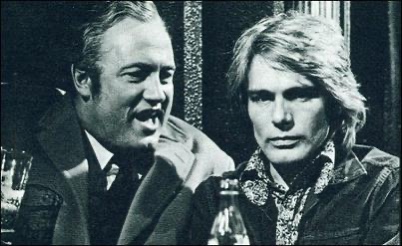
It’s also fair to say the series Budgie would not have been the same without Iain Cuthbertson‘s brilliant turn as sleazy ‘businessman’ and supposed father figure Charlie Endell. Often funny, always sarcastic, sometimes threatening, he used Budgie as a kicking stool, towards the end even literally. Like Budgie’s yearning for financial stability, Charlie Endell desperately wanted respectability. In a strange sort of way he was a template for Paul Raymond, Soho’s pornographer in chief during the 70s, 80s and 90’s, and he did achieve respectability of sorts, becoming one of the UK’s richest men through his far-sighted purchases of much of Soho’s real estate. As became the case in the latter part of the 20th century with Thatcherism, wealth did bring respectability, irrespective of where the money came from.
The character of Charlie Endell proved so enduring that he was given his own series Charles Endell Esquire by STV in 1979. After two well reviewed episodes a TV technicians’ strike curtailed its run and it would be a year before the series was rerun, although some erroneous reports claim the remaining four episodes were never shown. The series followed Charlie (played again by the excellent Iain Cuthbertson. Listen to the way he pronounces the word ‘juice’) being released from a long jail sentence and returning to his native Glasgow to pick up the pieces of his life. Also featuring a range of great Scottish actors including Gerrard Kelly, Rikki Fulton and Russell Hunter, the hiatus allowed the programme to go off the boil and a projected second series never happened.
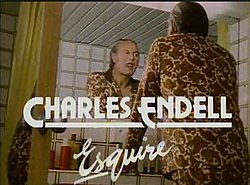
The setting of Budgie also gave a fascinating, and probably accurate insight into the Soho scene and certain parts of London at the time. A dark, grubby underworld populated by petty criminals, pornographers, prostitutes, strippers and bent coppers. In a weird sort of way, for viewers living a long way from The Smoke like myself, it still seemed slightly glamorous and exciting. Maybe not so much now but it’s still certainly intriguing and a touch nostalgic.
The series dealt with a range of morally ambiguous issues which were really only beginning to be acknowledged in the early 70s, and, even now, it’s easy to see why Budgie was quite controversial during this heyday of Mary Whitehouse and her fellow God-botherers, the Association of Viewers and Listeners. Illegal immigrants and some extremely old-fashioned and shocking racist language (Mrs Whitehouse didn’t seem to have any problem with this storyline), pornogaphy, co-habiting, single parenthood, selling babies and even the representation of a petty thief and philanderer as a sympathetic character were all relatively provocative subjects for the time and were dealt with in the series. Some of the treatments and the language used would not, obviously, be acceptable nowadays but that’s par for the course for programmes of this period, but most of us are intelligent enough to put these issues into a modern context.
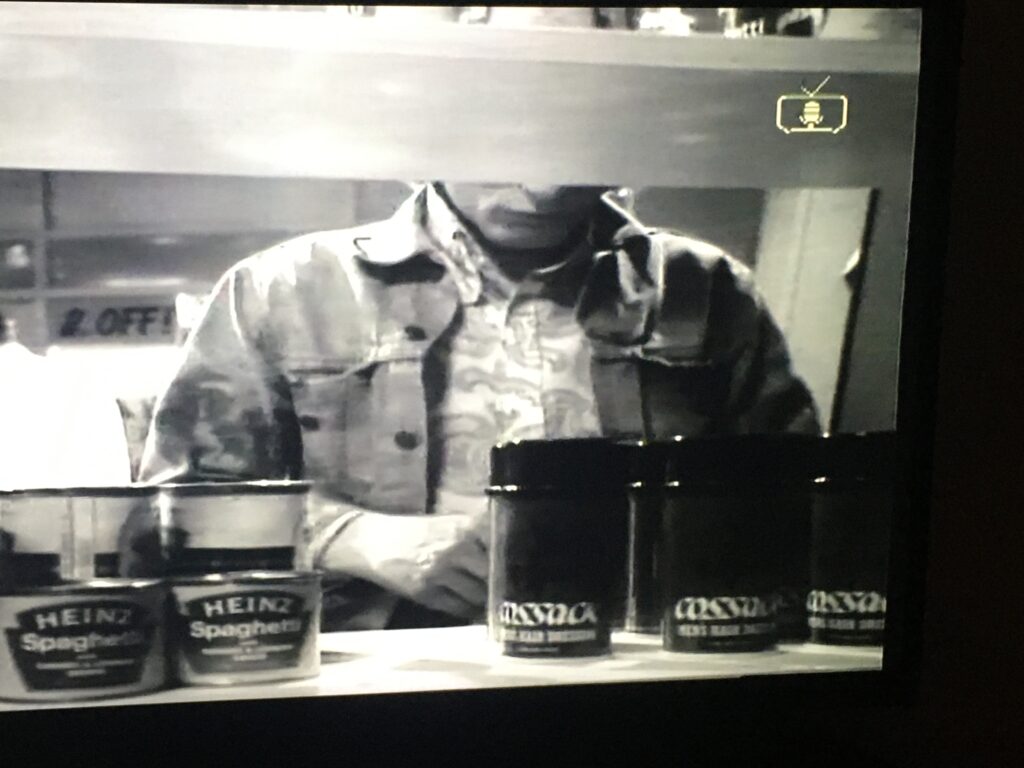
The representation of women in Budgie was also quite groundbreaking in some ways though deeply conservative and orthodox for the time in others. The main female character, Budgie’s girlfriend and mother of his child, Hazel (Lynn Dalby), is a long suffering but resilient figure. She puts up with more than most women would with him but is fairly self-sufficient and certainly doesn’t rely on him. She gives as good as she gets and is quite prepared and unashamed to be a single parent at a time when unmarried mothers were still talked about in hushed tones. One does wonder why such an intelligent and strong woman would waste her time with such a loser but it’s just as well that she did as their relationship provided a central and hugely entertaining element of the series. Budgie’s wife, Jean (Georgina Hale), is a similar sort of character to Hazel, though slightly more irritating. It’s maybe a weakness of the series that two strong, intelligent women would waste their time on such a failure as Budgie but, as I’ve said, the 70s were a different time.
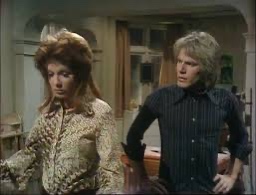
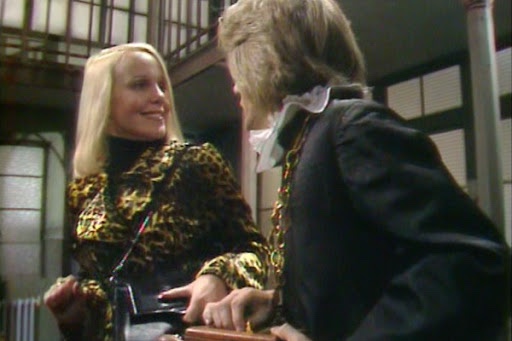
One other female character of note, who I feel deserves a mention, appeared in the first episode of Series 1. That doyenne of so many 70s programmes and all-round 70s icon (and I really don’t use that overused term undeservingly), Adrienne Posta. Appearing in the very first Budgie episode ‘Out‘, she played the Salford stripper, an ’employee’ of Charlie Endell. Budgie was given the task of looking after her for a while and, of course, the story wrote itself as it so often did in Budgie. In a plotline that would never see the light of day in our more enlightened times, she was supposedly 15 (although in reality she was and looked 22), the rather grim 70s immorality was compounded when she ran off with Budgie’s much older pal, Rogan. There is so much to say about this actress who anyone over the age of 55 will remember, if not her name, certainly her face, as she appeared in many classic films and TV programmes of the 60s and 70s. (See Adrienne Posta: The 70s ‘It’ Girl below)

Other classic British character actors who appeared at various times in Budgie included Gordon ‘Mr Hudson’ Jackson as a dodgy minister, John ‘Regan’ Thaw as an unlikely gay character, James Bolam, Derek Jacobi, Matthew Corbett (yes, that Matthew Corbett) and one of Stanley Kubrick’s favourite actors, the excellent Philip Stone. Even Golden Girl and wife of The Tremeloes‘ Chip Hawkes, the lovely Carol Dilworth, turned up in Series 1 (Everyone Loves A Baby)! (See Like A Bolt from The Blue: The Golden Shot).
The second series of Budgie ended on the 14 July 1972 and a planned third series never happened due to Adam Faith being seriously injured in a motor accident and retiring from acting for a long while. Faith did return and as well as acting in a string of well-received films such as MacVicar and Stardust with David Essex and an unlikely but unsuccessful musical version of Budgie, he also managed Leo Sayer (well, he was quite good at the time) and produced Roger Daltrey’s solo album. He became a successful financial journalist and even established a financial TV channel which, unfortunately for him, was one financial step too far and it failed badly.

Faith died tragically young at the age of only 62 of a heart condition and although he will be remembered by many as a huge pop star of the early 60s, for most people of my age, I would argue, he will be remembered as Ronald ‘Budgie’ Bird, petty thief, loser, loner, lovable rogue and one of the groundbreaking central anti-heroes of the 70s.
And I haven’t even mentioned Budgie jackets….

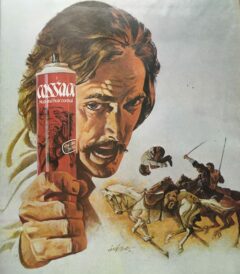
Good article…thought you might be interested in this…
http://www.britishtelevisiondrama.org.uk/?p=5873
Thanks for that. Will have a look.
Apologies for being the latest of the late to the party. I would just like to make one wee correction to your otherwise great and informative article.
The Ray Davies penned song that played over the titles of the 2nd series, other than being written by Ray in and amongst material he was writing for the classic Kinks album Muswell Hillbilles sessions, has no Kinks involvement whatsoever. The lead vocal is by as session muso called Roger Moon.
The session took place at IBC on 21st February 1972. Led by producer Jimmy Horowitz, Horowitz recalled to the best of his memory, the session included Andy Bown (bass), Barry De Sousa (drums), Bob Cohen (guitar) and Chris Spedding (guitar) with Horowitz himself playing the piano and Roger Moon on vocals.
An earlier version of Nobody’s Fool was recorded/attempted by Mike Vickers, Manfred Mann multi-instrumentalist and soundtrack composer. Recorded at Intersound Studio, Wembley in July 1971 Vickers’ recording sounds more like Ray Davies’ original piano and vocal demo. The latter is available on the expanded 2CD re-release of Muswell Hillbillies.
Pye who had the rights (and were coincidently the label the Kinks had just left) to commercially release music from ITV series at the time were more interested in having Sesame Street as the A side, and flipped the tracks when Nobody’s Fool turned out so well.
Keep up the good work.
Russell Smith.